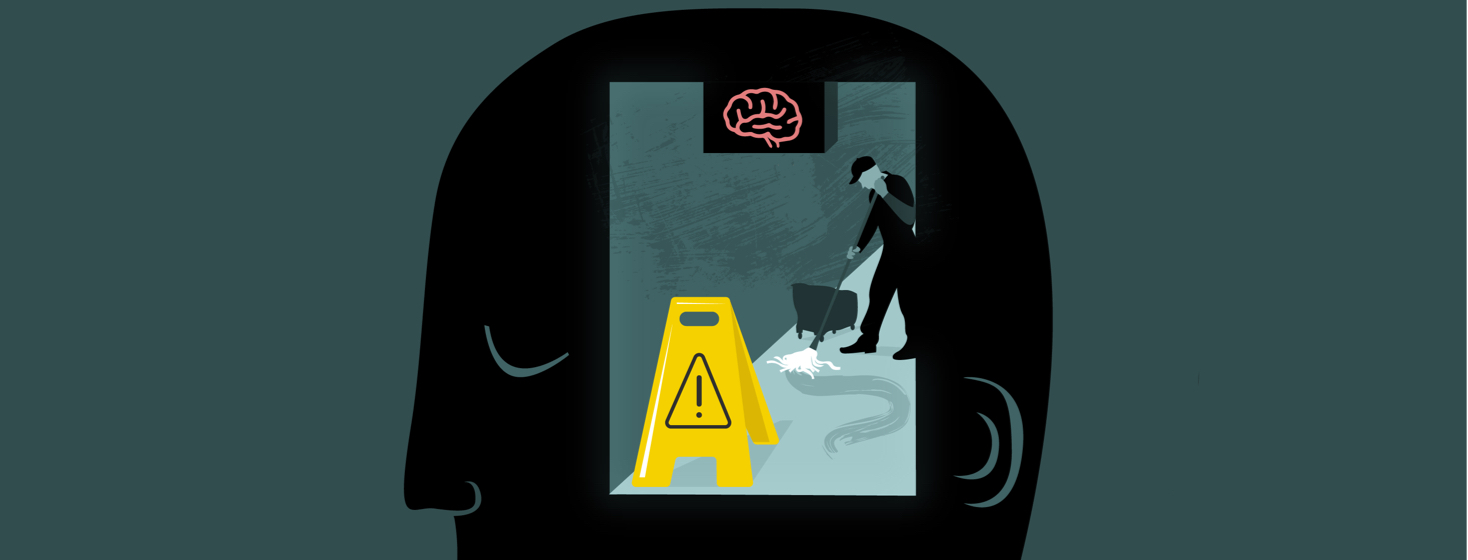Brain Fog Makes it Hard to Function
There are days I wonder how I made it through college while I was flaring. I have many memories of being hours deep into simple homework assignments, frustrated beyond belief. No amount of ibuprofen, online resources or silence could help me wrap my mind around my coursework. In the small hours of the night, I would silently cry while hunched over in pain, feeling incapable of learning. If you struggle to function with brain fog, you are not alone. For me, it's one of the most overwhelming symptoms of psoriatic arthritis.
Brain fog isn't occasionally forgetting your keys or the home phone number. It's so much more intense. Brain fog makes you forget where you were going when you climbed in the car. It makes you forget the word 'sugar' and say, "the white stuff, like salt, but sweet." And, oh my gosh, does it make problem-solving impossible.
The progression of brain fog
There are days I feel like I'm losing my mind. I question if I've lost IQ points. But worse of all, it makes me feel so insecure and down on myself. It makes me long for times when I wasn't suffering as much. Back then, I was quick as a whip. My attention to detail was always flawless, and my vocabulary was extensive. I never forgot things either. It makes me feel so ashamed and disappointed that now, there are days where I struggle to remember what I did five minutes ago.
But even though things change, that person isn't gone. Mind fog does not make you any less intelligent than you already were. You are not your pain brain; you are just dealing with a symptom of a disease you have, and that's all.
Ways to cope with brain fog
It is hard to live with chronic pain. Think about it. Your brain is coping with so much already, processing both pain and your thoughts. It's reasonable that when you're flaring, it may not be able to give you top-notch results.
Take breaks when needed
Give yourself a break. And give your mind a break too. Your brain won't perform better when you're in pain, exhausted, and feel upset at yourself for not being able to complete the task flawlessly. If it is essential for something to be accurate, start early so you can take breaks to walk away, rest and decompress, and come back when you feel a little better.
It's okay to ask for help
It's also okay to ask for help. A professor in college once told me, "even professional writers need an editor," and that helped me accept that we can all benefit from someone to check our work. It doesn't make you any less reliable- it helps a lot and can help relieve stress.
Don't be hard on yourself
And most important, forgive yourself. You are going through a lot; the last thing you need to do is be hard on yourself. Better yet, take it a step further and be proud of yourself. It's not easy to function when you're hurting! Try to feel happy with what you were able to get done and not worry about the rest.
Looking ahead: How to deal with brain fog
I've learned so much about coping with brain fog through college. While I still have days where I struggle, I know that I need to give myself breaks, make lists, and ask for help. And I also have to tell myself, "you can do this." Believing in myself doesn't make my flares magically go away, but it does help me feel less insecure. Brain fog is only a symptom of PsA- it is not a mark on my intelligence.

Join the conversation